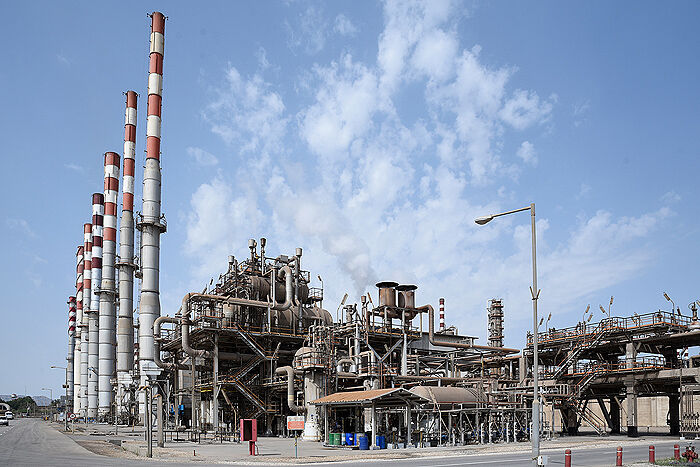Minister of Petroleum Javad Owji said: “This project has been implemented with a €2.2 billion investment. With its implementation, we have entered the fuel oil chain, not to mention the fact that the Bandar Abbas oil refinery will become the second refinery in the country to stop fuel oil supply.”
“Bandar Abbas oil refinery processes 350,000 b/d of products, 130,000 b/d of which is converted into fuel oil. In this project implemented using the technical know-how of the Research Institute of Petroleum Industry (RIPI) and engagement of local contractors and manufacturers, 8,000 persons will be employed,” he said.
Owji said: “Hormuzgan Province is the country’s hub of refined petroleum products. With the construction of the Shahid Qassem Soleimani and Morvarid Makran refineries this province will see its refining capacity reach 1.8 mb/d.”
The minister noted that fuel oil, which is low value, would be transformed into more valuable products.
$8bn projects
Owji said nearly $8 billion of upstream and downstream petroleum industry projects would come online by the end of the current calendar year.
He added that the refinery of Phase 14 of the giant South Pars gas field, worth $2.5 billion, the Isfahan refinery’s fuel quality upgrade, worth $800 million, NGL 3200 project, Abadan refinery capacity upgrade as well as urban and rural gas supply are among these projects.
The minister expressed hope that “Mehr Khalij Fars” refinery would come online with a capacity of 120 tb/d by March 2024. “By enhancing the refining capacity of Hormuzgan Province, implementation of Rafsanjan-Mashhad, more than 460 km of which lying in Hormuzgan Province, has started and is expected to come online by May 2023.”
He said that operation of this pipeline would put an end to the need for 1,500 oil tankers to ply roads daily. “This project would largely help prevent pollution, save fuel and reduce road accidents.”
He also said that the Minab-Sirik gas pipeline would be completed by Mars, adding that Jask represented good opportunities for investment in the oil, gas, refining and petrochemical sectors.
Light oil output up 200 tb/d
Minister Owji said Iran was exporting oil even under toughest ever sanctions, adding that the country’s oil and gas production had reached 3 mb/d and 1 bcm/d, respectively.
He said Iran added 200 tb/d to its light oil production in the current calendar year, adding: “We have many customers for our light crude oil, the grade which we do not have too much to supply.”
He touched on the activity of about 70 petrochemical plants in the country with a total capacity of 90 million tonnes a year and said Iran’s petrochemical exports were valued at $15 billion last calendar year.
“Venezuela’s oil production dropped from 4 mb/d to 250 tb/d as soon as it was sanctioned, but Iran has made significant progress in the oil and gas industry,” he said.
Refinery modernization
Jalil Salari, CEO of National Iranian Oil Refining and Distribution Company (NIORDC), said upgrading the quality of fuel oil at Bandar Abbas oil refinery was a legal obligation which was fulfilled using local know-how.
That, he said, would add about 10 million liter of petroleum products, including gas oil and solvents, to national output. “These products include 5 ml/d of gas oil, 4 ml/d of special products and about 1.5 ml/d of grade-2 and grade-3 oil.”
He said 30 tonnes an hour of coke was being produced by this project, adding: “I hope that we can modernize this refinery within three to four years, which would export more products in addition to supplying domestic needs.”
Sponge coke production
The project for upgrading the quality of heavy products of Bandar Abbas refinery has been implemented for coke production and reducing sulfur and fuel oil output. With an investment of $1,700 million, the project has led to the production of 300,000 tonnes a year of sponge coke. Delayed coker is being used for coke production.
The total investment for utilities and related installations, under an EPCF project, stands at €810 million, 75% of which is provided by the contractor and the rest from the annual margins of Bandar Abbas oil refinery.
The EPCF project for building processing units with a focus on sponge coke and other products is estimated at €722.
The grade-2 and grade-3 oil production project is in the stage of selecting a contractor for the EPCF project. The initial investment for this project is estimated at €600 million.


Your Comment